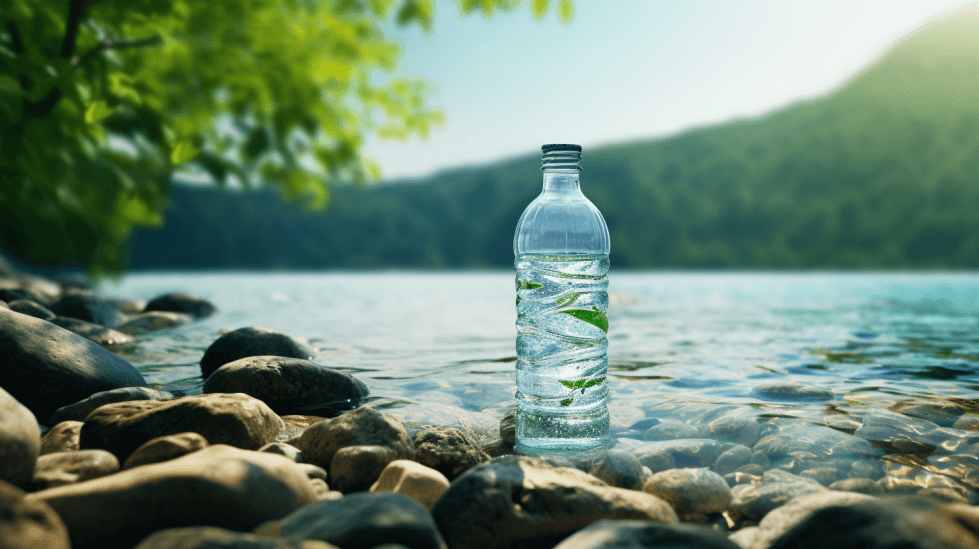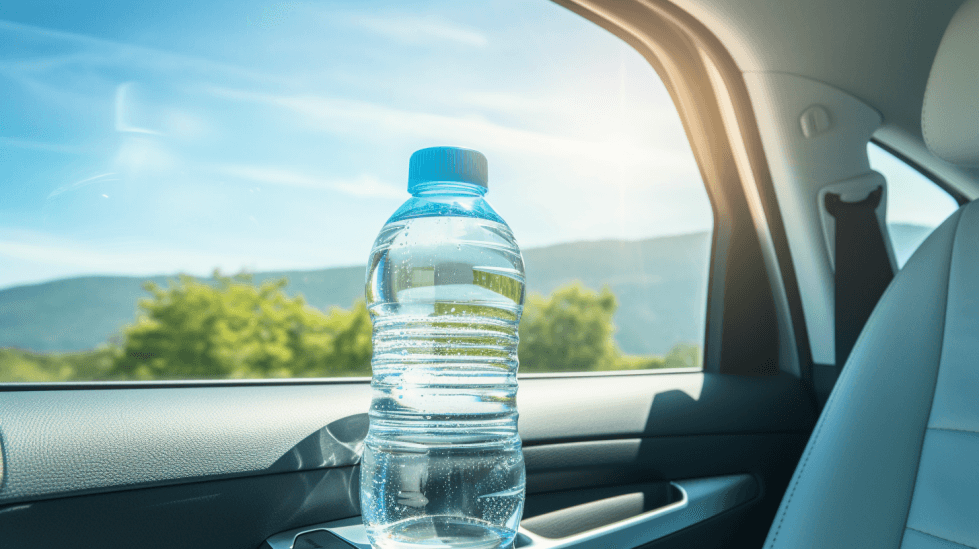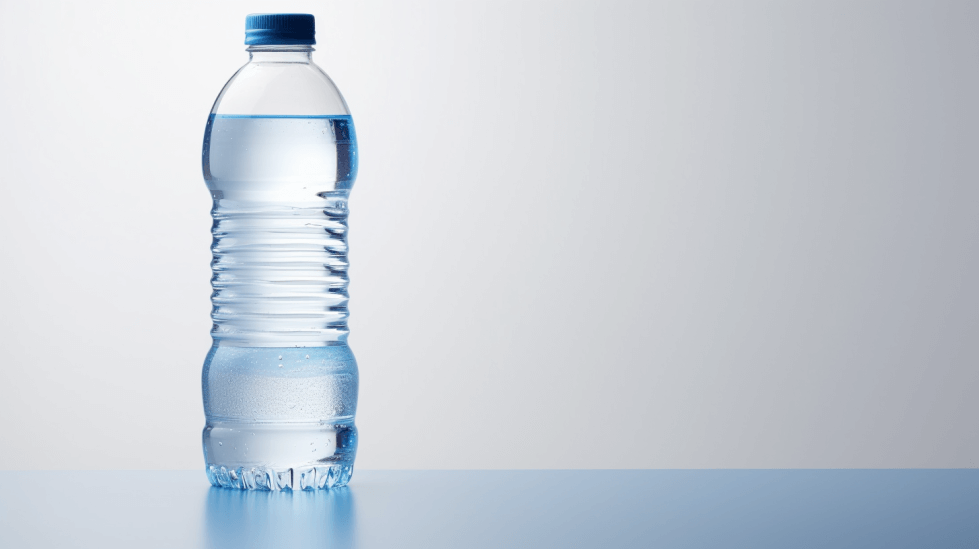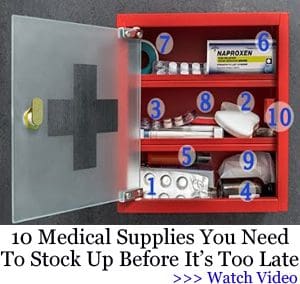Does Bottle Water Expire
It’s a common question that many of us have wondered – does bottled water expire? At first glance, it might seem odd to think that water, a substance that has been on Earth for billions of years, could have an expiration date. After all, water is essential for life and is constantly being recycled through our planet’s natural processes.

However, when it comes to bottled water, it’s not the water itself that expires, but rather the container it comes in. The plastic bottles used to package the water can break down and release chemicals over time, which can impact the taste, smell, and overall safety of the water. In addition, the way the water is bottled, stored, and regulated can influence its shelf life and potential for contamination.
Key Takeaways
- Bottled water’s expiration date is related to the container, not the water itself
- Storage conditions and bottling processes can affect the water’s quality
- Proper handling and storage of bottled water ensures safety and taste
Expiration of Bottled Water
I have often wondered if bottled water has an expiry date, and after some research, I’ve learned that bottled water does, in fact, have an expiration date. In some places, like New Jersey, a two-year expiration date is even mandated by law. While water itself doesn’t expire, the reason for the expiry date is mainly due to the packaging and storage conditions.
It’s important to store bottled water properly to maintain its quality. Factors such as sunlight, heat, and nearby chemicals can affect bottled water’s taste and purity. Although having a specific expiry date, the shelf life of bottled water is not limited if it’s stored properly.
For long-term storage of bottled water, it’s important to follow a few guidelines:
- Store it in a cool, dark place to avoid exposure to sunlight and heat sources.
- Keep it away from household chemicals or strong odors.
- Make sure the bottles remain unopened and sealed.
- Properly dispose of any water that shows discoloration or has an off smell.
Following these guidelines will ensure indefinite safety shelf life for your bottled water. However, most companies provide a recommended shelf life ranging from 12 months to 2 years. This is because the flavor and quality over time may change due to the permeability of the plastic containers.
In conclusion, I have learned that while water doesn’t expire, bottled water comes with an expiration date to ensure its quality. By following proper storage guidelines, we can extend the shelf life of our bottled water and enjoy its refreshing taste for a long time.
Understanding the Bottling Process

As someone who has researched bottled water extensively, I believe it is essential to understand the bottling process to grasp why bottled water may have an expiration date. The production process varies among bottled water companies, but there are some common elements, such as ensuring sanitary facilities and using date-based lot codes, which I will explain here.
Importance of Sanitary Facilities
In my experience, one crucial aspect of the bottling process is the need for clean and sanitary facilities. Bottled water manufacturers have to maintain high standards of hygiene to ensure the water remains free from contamination during the production process. Consumer reports highlight the importance of these sanitary facilities, as any lapse in cleanliness could adversely affect the quality of the bottled water.
Date-Based Lot Codes
Another key element in the production of bottled water is the use of date-based lot codes. These codes typically include information about the date of manufacture and the best-by or sell-by date for the lot of bottled water. Essentially, the manufacturing date helps ensure traceability, while the best-by date informs consumers about the recommended consumption period to guarantee freshness and taste.
Water producers place date-based lot codes on each bottle of water to assist customers in understanding the water’s quality and longevity. Various types of bottled water may have different shelf lives, which the producers take into account when assigning these codes. As a result, understanding the bottling process can help one better appreciate why bottled water might have an expiration date and the factors affecting its quality.
Role of FDA and Regulations
As a responsible consumer, I always make sure to stay informed about the regulations and guidelines set forth by the U.S. Food and Drug Administration (FDA) concerning bottled water. The FDA plays a crucial role in ensuring that bottled water is safe for consumption and adheres to certain quality standards.
I have learned that the FDA regulates bottled water within the United States under the Federal Food, Drug, and Cosmetic Act (FD&C Act). This Act makes manufacturers responsible for producing safe, wholesome, and truthfully labeled bottled water products. The FDA has established specific guidelines under Title 21 of the Code of Federal Regulations (21 CFR), which outline standard regulations for different types of bottled water, such as spring water and mineral water.
Under the 21 CFR, there are also standard quality regulations that bottled water producers must adhere to. These standards help ensure that bottled water is free from contaminants and meets FDA limits for impurities and other potentially harmful substances. Additionally, bottled water manufacturers must follow the FDA’s Good Manufacturing Practices, which include proper sanitation, monitoring, and record keeping.
Although the FDA does not require companies to put expiration dates on their bottled water labels, I have discovered that properly stored bottled water does not expire. Nonetheless, some companies voluntarily indicate a “best by” date on their bottled water, so consumers can be assured they are drinking water of the highest quality.
In conclusion, I trust that the FDA’s role and their comprehensive regulations provide a secure framework, ensuring that the bottled water I consume meets stringent safety and quality standards.
Impact of Storage Conditions
Effects of Temperature
I have observed that the temperature at which bottled water is stored can impact its quality and safety. Storing water in excessive heat, such as in hot cars or direct sunlight, can cause the plastic to release unwanted chemicals into the water. High temperatures might also accelerate the growth of algae or mold in the water, especially if the bottle is not completely sealed. Ideally, it’s best to store bottled water at room temperature or in a cool place, lowering the risk of chemical leaching from the plastic or microbial contamination. Keeping water below 86 degrees Fahrenheit (30 degrees Celsius) can help maintain its freshness and safety.
Implications of Long-Term Storage
When it comes to the long-term storage of bottled water, I must highlight that ambient air gases can affect the water’s taste and odor, even if the bottle remains unopened. Storing water for an extended period may allow chemicals and environmental contaminants to seep into the water through the container. Therefore, it’s essential to store bottled water in a dark place and use opaque containers, which can limit the exposure to light and the possible degradation of certain water components, such as minerals or dissolved gases.
Improper storage of bottled water can lead to changes in the water’s flavor over time. I recommend consuming bottled water within a reasonable timeframe after opening it to ensure the best taste and quality. While consuming water that has been stored for a long time poses minimal health risks, the taste might not be as pleasant as expected.
To summarize, the storage conditions of bottled water, such as temperature, exposure to light, and the duration of storage, can all affect the quality, taste, and safety of the water. It’s advised to store water in a cool, dark place away from direct sunlight and to consume it within a reasonable period after opening the bottle.
Potential Health Implications
Chemicals from Plastic Bottles
In rare cases, health risks may arise when consuming water from plastic bottles. Most plastic water bottles are made from materials such as polyethylene terephthalate (PET) or high-density polyethylene (HDPE). Prolonged storage or exposure to heat can cause these plastic materials to release toxic chemicals like endocrine disruptors or potential carcinogens into the water. This can result in contaminated water, posing health concerns for consumers. However, using an activated charcoal filter can help reduce the amount of chemicals present in the water.
Bacterial Contamination
Another public health concern with bottled water is bacterial contamination. Bacterial growth can occur when bottles are stored in less than ideal conditions or when the water remains stagnant for an extended period. It’s a good idea to check the bottle for any signs of contamination or odd odors before consuming the water. Regularly cleaning and refilling reusable bottles can also help minimize bacterial growth.
Effect on Immune System
Although not a common issue, contaminated water can impact the immune system, especially in individuals with compromised immune systems. Ingesting water with a high bacterial load or harmful chemicals can lead to an overtaxed immune response, resulting in a greater risk of illness. To protect your immune system, it is crucial to ensure that the water you drink is free from contamination.
Aesthetic Defects
Aside from potential health concerns, expired bottled water may exhibit some aesthetic defects. For instance, the water may develop a stale taste or an altered odor due to the leaching of chemicals from the plastic container. While these changes may not pose a direct health risk, they can affect the overall taste and enjoyment of the water.
By being aware of the health implications associated with expired bottled water, you can make informed decisions about water consumption and storage. Remember to store water in cool, dark places, and always check for signs of contamination before drinking.
Alternatives to Bottled Water
While bottled water is a popular choice for many people, it is essential to look at alternatives that are more sustainable and environmentally friendly. In this section, I will explore several alternatives to bottled water such as well-known brands, reusable water bottles, tap water, glass bottles, and cooler jugs.
Well-Known Brands
I’m aware that there are several well-known brands that offer high-quality water, such as spring water, which adhere to stringent water quality regulations. These brands are trusted by consumers and may be a better option than generic retail bottles. Some examples include companies that follow the guidelines set by the International Bottled Water Association.
Reusable Water Bottles
In my opinion, one of the best ways to reduce the environmental impact of bottled water consumption is to use a reusable water bottle. These bottles, often made of stainless steel or a safe type of plastic, can be filled with tap water or other sources of water and reused multiple times. Not only does this save money, but it also helps reduce the amount of plastic waste in landfills.
Tap Water
I know that many places in the United States, tap water is considered safe to drink and is monitored by strict regulations. New Jersey, for instance, has specific state laws regarding water quality standards. By investing in a water filter if necessary, individuals can enjoy clean and refreshing tap water without contributing to plastic waste.
Glass Bottles
For those who prefer a more traditional and natural substance, glass bottles are a fantastic alternative to plastic retail bottles. They’re free of chemicals often found in plastic and can be easily cleaned and reused. Glass bottles also maintain the taste of water better than plastic bottles, ensuring a better overall experience for the consumer.
Cooler Jugs
Lastly, cooler jugs are a convenient and eco-friendly way to store and dispense water for homes and offices. These jugs are typically made of BPA-free plastic and can be filled with spring water or filtered tap water. Using a cooler jug eliminates the need for multiple opened water bottles and helps reduce plastic waste.
In conclusion, choosing an alternative to bottled water is not only beneficial for the environment but can also have a positive impact on your overall health and well-being.
Frequently Asked Questions
How long is bottled water good for?
Unopened bottled water can be stored indefinitely if kept in the proper environment. However, the material used for packaging can break down and leak contaminants into the water over time, affecting its safety and taste. It is generally recommended to follow the expiration date on the bottle. 1
What are the signs of expired bottled water?
Although water itself doesn’t technically expire, if it has been stored in a deteriorating bottle for a long period, you might notice a “plastic-like” taste or an off smell. In this case, it’s better to avoid drinking it. 2
How does storage temperature affect bottled water?
Temperature can affect the quality and safety of bottled water. Storing it in a cool, dark place can help maintain taste and minimize the potential growth of microorganisms. Extreme temperatures on either end of the spectrum should be avoided. 3

Is it safe to drink water left in a hot car?
Drinking water that’s been left in a hot car can be unsafe if it was stored for an extended time. The plastic bottle may release harmful chemicals when exposed to high temperatures, which can then seep into the water itself. It’s best to avoid consuming water left in a hot car for a prolonged period. 4
Can sunlight cause water to go bad?
Sunlight can speed up the breakdown of the plastic bottle material, potentially contaminating the water. Additionally, direct sunlight may promote the growth of algae or bacteria. It’s a good idea to store bottled water in a dark, cool place whenever possible. 5
Does opened bottled water have a shorter shelf life?
Yes, opened bottled water has a shorter shelf life due to potential exposure to bacteria and other contaminants. It’s best to consume opened bottled water within a few days for optimal quality and safety. 6








